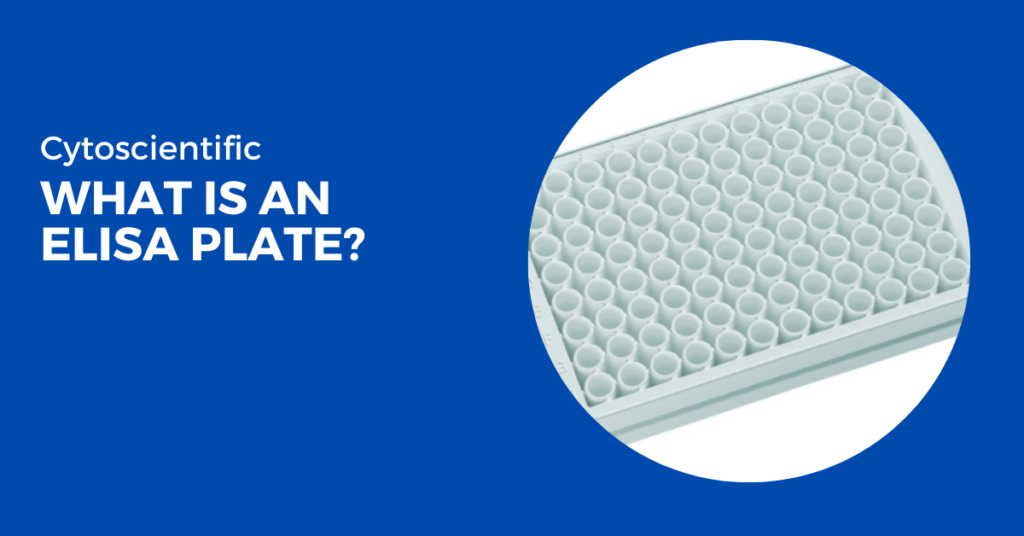If you have ever wondered what is an ELISA plate, you are at the right place. ELISA stands for enzyme-linked immunosorbent assay, which is a popular method used in laboratories to detect and measure substances such as proteins, antibodies, and hormones. Let us understand it in simple term.
An ELISA plate is essentially a flat plate containing many small wells, usually arranged in an 8×12 grid, making a total of 96 wells. These wells are like tiny test tubes where the reactions take place. Plates are usually made of plastic and can be transparent or opaque depending on the type of detection method being used.
How It Works
ELISA plates are used to detect and measure specific substances such as proteins or antibodies in a sample. To do this, the wells in the plate are first coated with an antigen or antibody that binds to the target substance. Then, the plate is treated to block any non-specific binding. The sample is added to the wells, and if the target substance is present, it will bind to the coating. Next, a detection antibody linked to an enzyme is added, which binds to the target substance. Finally, a substrate is added that reacts with the enzyme to produce a color change or signal, which can be measured with a plate reader. The intensity of the signal indicates the amount of the target substance in the sample.
Why Use an ELISA Plate?
- Provides high sensitivity to detect very low levels of substances.
- Offers specific results by targeting particular substances, reducing false positives.
- Delivers quantitative data, allowing for precise measurement of the substance amount.
- Versatile and applicable in various fields such as medical diagnostics, research, and food safety.
- Enables high-throughput testing, processing many samples simultaneously.
- Easy to use with standard laboratory equipment, making it accessible for routine testing.
Applications
ELISA plates are utilized in various applications:
Medical Diagnostics:In medical diagnostics, ELISA plates are used to detect diseases by identifying specific proteins or antibodies in blood samples. These plates can be used to test for diseases such as HIV, hepatitis, and COVID-19. The accurate results provided by the plates help doctors diagnose conditions and effectively monitor patients’ health.
Research: In research, ELISA plates are used to study proteins, antibodies, and other substances. They help scientists understand immune responses, track disease progression, and develop new treatments. By providing precise measurements, ELISA plates support various experiments and contribute to scientific discoveries and advancements.
Food Safety: ELISA plates are used in food safety to test for allergens, contaminants, and pathogens in food products. They play a crucial role in ensuring food safety by detecting harmful substances and verifying that labels accurately reflect ingredient content. This is essential for consumer safety and compliance with health regulations.

